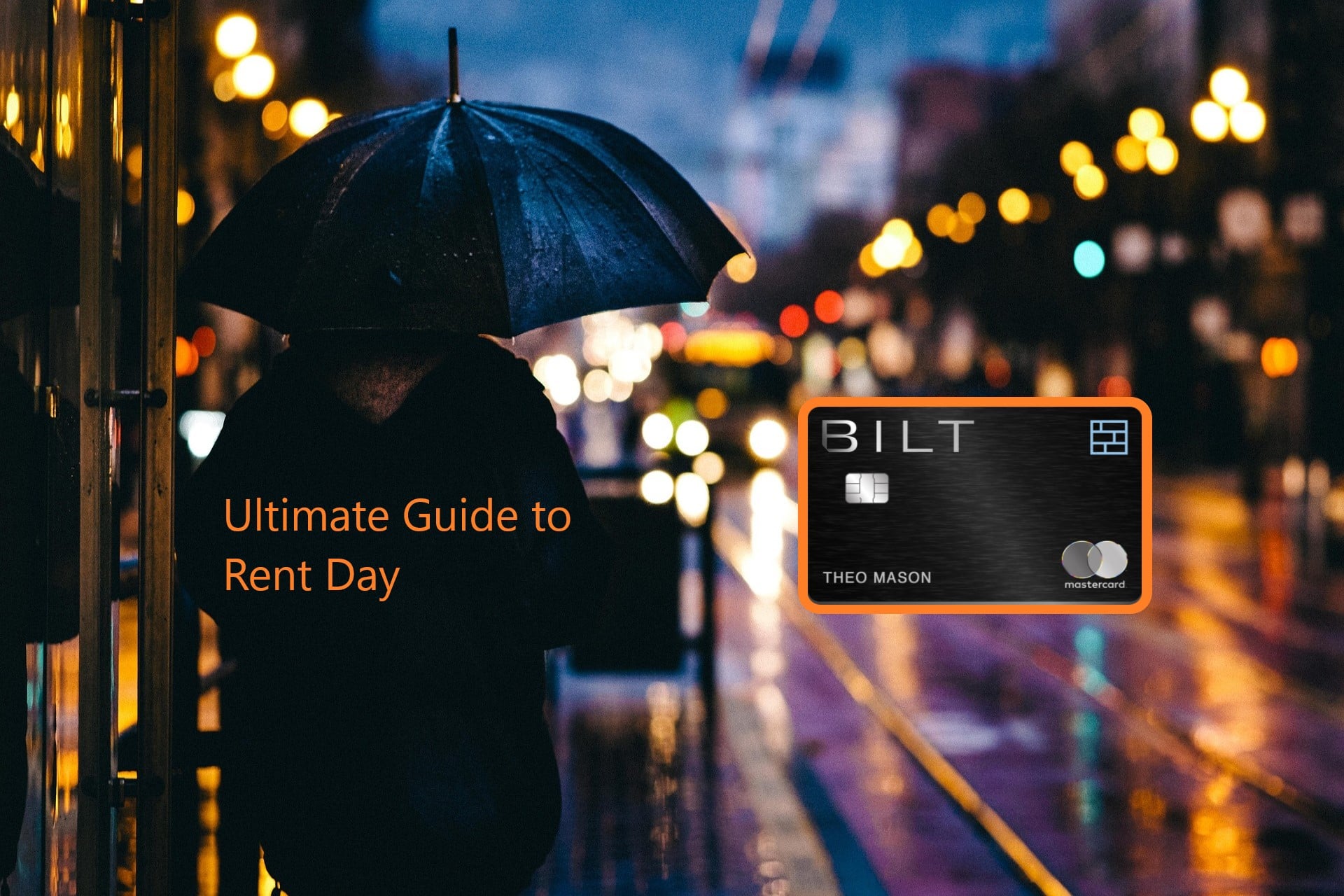Last updated on April 1st, 2024
The holiday season is fast approaching, and with that comes big seasonal spending. Beyond the gifts, Americans spend heavily on travel, food, entertainment, and more during November and December. Here are some helpful tips on maximizing your holiday rewards – and minimizing debt – if you plan to lean on your credit cards .
Table of Contents
At a Glance
- Maximizing your rewards is essential for stretching holiday budgets
- Carefully examine your current credit cards to identify any areas you plan to spend heavily on that you won’t be earning rewards
- Examine rewards or low-rate cards that fit your budget and won’t be a financial burden in the coming year
- Where possible, opt for a no annual fee card
- Track your spending and stay firm on your budget
The Importance of Maximizing Holiday Rewards
Holiday rewards can come in many forms, including loyalty points, cash back, discounts, and other perks. These rewards can help you save money and get more value from your holiday spending. Maximizing your holiday rewards can also help you offset the costs of holiday expenses, such as gifts, travel, and entertainment.
To get the most out of your holiday rewards, it’s essential to understand the different types of rewards programs available. Some rewards programs are specific to certain retailers or brands, while others are more general and can be used at multiple locations. Some programs offer points or cashback, while others offer discounts or other perks. By understanding the rewards programs available, you can choose the ones that best suit your needs and preferences.
Strategies for Maximizing Holiday Rewards
Maximizing your holiday rewards requires careful planning and strategy. Here are some tips to help you get the most out of your holiday rewards:
- Start planning early: The earlier you start planning for holiday spending, the more time you have to research rewards programs, compare prices, and take advantage of deals.
- Set a budget and stick to it: Before you start shopping, set a budget for your holiday spending. This will help you avoid overspending and accumulating debt.
- Use the right rewards programs: Choose rewards programs that offer the most value for your holiday spending. Look for programs that offer high rewards rates, low fees, and flexible redemption options.
- Combine rewards programs: Use multiple rewards programs to maximize your rewards. For example, use a credit card that offers cash back on holiday purchases and combine it with a loyalty program with discounts and other perks.
- Redeem rewards strategically: Use your rewards strategically to get the most value. For example, use cash back rewards to pay off your holiday credit card bill or redeem loyalty points for gifts or travel.
Tips for Saving Money This Holiday Season
Here are our top tips for saving money this holiday season:
Avoid Store Cards
The temptation to apply for a store credit card is ever-present. When checking out at most stores, cashiers ask if you’d like additional savings via the store’s in-house credit card. In most cases, however, you should avoid store cards.
Why? Store cards offer very little value for consumers unless they spend very heavily at a particular retailer. Store cards are typically closed-loop credit cards. With a closed-loop card you can only shop at one retailer – and such cards aren’t backed by a payment network like Visa or Mastercard.
Other negative aspects of store cards include:
- Not all cards report to the three major credit bureaus regularly
- Higher APRs than open-loop credit cards
- Limited signup bonuses/holiday rewards
Tips for Using Store Cards Wisely
While there are several drawbacks to using store cards, that doesn’t mean there are no ways to safely – and effectively – use closed-loop credit cards for holiday spending. Because store cards have lower credit requirements than retail cards, they are a popular option for those with average credit who don’t want to shell out on an annual fee or a security deposit for a secured card.
Here are some basic tips for effectively using store cards this holiday season:
| Read the terms & conditions carefully | Before applying for a store card, ensure you thoroughly review the terms and fees associated with it. Pay close attention to the annual percentage rate (APR), annual fees, and any other charges. Understanding these costs is crucial for responsible use. | ||
| Budget | Establish a strict budget for your store card purchases. Knowing how much you can afford to spend and pay off each month will help you avoid accumulating high balances and interest charges. | ||
| Avoid keeping a balance | Store cards often feature much higher APRs than traditional credit cards. To avoid paying unnecessary interest, aim to pay your balance in full each month. This method can help you take advantage of rewards without incurring interest charges. | ||
| Pay on time | Always make your store card payments on time every month. Timely payments are essential for maintaining a positive credit history and avoiding late fees. Consider setting up automatic payments to ensure you never miss a due date. | ||
| Use promo financing | Many store cards offer promotional financing on select purchases over a set amount. If your store card offers promotional financing like 0% APR, use it strategically. Ensure you can pay off the balance within the promotional period to avoid retroactive interest charges. | ||
| Monitor your credit | Store cards can have just as big an impact on your credit report as an open loop credit card. Regularly check your credit reports to ensure that your store card activity is reported accurately. This can help you spot any errors and track your credit-building progress. | ||
Find the Right Card for Each Purchase
Instead of using one credit card, maximize your rewards by selecting the right card for every purchase. For instance, a card like the Discover It Cash Back offers 5% back when shopping at Walmart, Target, and Amazon during the holiday season. Using your Discover Card for gift purchases, online groceries, or other essentials is great.
If you aren’t sure what the right card might be, consider a versatile cash back card like the Chase Freedom Flex. It earns 5% back in rotating categories, and Q4 2023 includes Amazon.com and Walmart. For those who prefer mobile payments, we like the PayPal Cashback Mastercard from Synchrony, which earns an unlimited 3% cash back on all purchases.
Take Advantage of Signup Bonuses to Maximize Holiday Rewards
Most rewards credit cards come with signup bonuses – some of which are very lucrative. Use these bonuses to your advantage.
For instance, if a card offers a lengthy 0% intro APR on purchases, consider using that card to finance larger purchases during the holiday season. Then, you will have 12, 15, or even 18 months to pay down those balances without worrying about interest charges.
Some cash back cards offer a bonus for spending a set amount within a given period. Using Freedom Flex as an example, new accounts receive $200 cash back for spending $500 on purchases within the first three months. Spend $500 on gifts, groceries, bills – whatever – and instantly recoup $200 of that spend.
Payback Plan for Holiday Debt
Start prepping your plan of attack to pay down holiday credit card debt. Do not make your credit card debt an afterthought. Instead, set yourself up for success, and follow this guide to help prepare a payback strategy.
Make a List of Your Holiday Debt
It may sound silly, but simply sitting down with a pen and paper or a spreadsheet can help you pay back holiday credit card debt. Begin by writing down the credit cards you have. Then the balances owed for each. In return, you get a bird’s eye view of your current holiday debt – an advantage for your plan of attack.
List Out Credit Card Interest Rates
On this list, you should also allow space for interest rates. The soaring interest rates and frequent changes make it a good point to highlight the cards with the highest rates. You can use this as a guide to determine how you want to tackle your holiday credit card debt. Typically, there are two methods of cutting down on credit card debt, and that’s either the snowball method or the avalanche method. The snowball method is when you tackle your smallest credit card debts first until you get to your highest credit card debt balance. With the avalanche method, you need to take note of interest rates, as with this method, you tackle the debt with the highest interest rate first.
Consider a Balance Transfer Credit Card
This next step in the guide is optional. Depending on your situation and your comfort with your credit card debt, you may want to consider a balance transfer credit card. In essence, a balance transfer credit card is used to pay down an existing credit card debt at a better rate.
As previously mentioned, credit card interest rates are worth noting. Many balance transfer credit cards have introductory rates as low as 0% for a certain period. Transferring over existing credit card debt to a card like the Citi® Diamond Preferred® Card will benefit you with 0% intro APR for 21 months on balance transfers. The lengthy introductory offer – three months shy of two years – can help you avoid the accruement of interest on existing credit card debt. Ultimately a balance transfer can help you pay less money on your credit card debt.
Make Way For Additional Income
Easier said than done, but if you can manage a side hustle or two, it may help as a temporary aid to pay credit card debt. Again, this step is optional, but making extra cash can make a big dent in holiday credit card debt. Something like a garage sale or selling clothes you no longer need or want online can help as additional income.
Pay More Than Your Minimum Balance
Once you have taken all the proper steps and executed your plan to pay down holiday debt, plan how you will pay your balance. Always aim to pay more than your credit card minimum balance. The reason for this is to save yourself time and to avoid paying a ton of money on interest.
For example, if you have a credit card balance of $5,000 with a 26.99% APR and plan on paying it down in 21 months, you will pay about $1,328.25 in interest – assuming you pay $301.35 monthly. If you decided to only pay the minimum, which can sometimes be as low as $40, you will never catch up. Your debt will continue to pile up due to the interest. In the example above, if you switched out the $301.35 monthly payment for a lower payment of $120, your total paid interest on that debt can be as high as $9,928.47. And it would take you over ten years to pay down that debt if you were stuck with a $120 monthly payment.
The Last Step
More like the last piece of advice in this guide to help pay back your holiday credit card debt. Try your best to not use the credit cards you’re paying down. Think before you buy, and when you do make a purchase use your debit card. If you continue to charge the credit cards you’re paying down, the debt will only continue to pile on. Unless an emergency happens and you have no choice but to use your credit card, it’s best to avoid use and instead make purchases with debit or cash.
Related Article: Navigating Credit Card Debt During A Financial Crisis
Featured photo by Nicole De Khors / Burst
Editorial Disclosure – The opinions expressed on BestCards.com's reviews, articles, and all other content on or relating to the website are solely those of the content’s author(s). These opinions do not reflect those of any card issuer or financial institution, and editorial content on our site has not been reviewed or approved by these entities unless noted otherwise. Further, BestCards.com lists credit card offers that are frequently updated with information believed to be accurate to the best of our team's knowledge. However, please review the information provided directly by the credit card issuer or related financial institution for full details.



